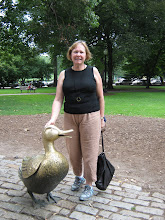With eyesight that is eight times better than humans, majestic eagles build their nests on top of high cliffs to get the best vantage point. And with a grip that is up to ten times stronger than humans, eagles are incredibly powerful. Both of these attributes make them amazing hunters.
Save the Eagles Day is an American invention designed to protect their native eagles and keep them off the Endangered Species List. Only two kinds of eagles live in North America, the bald eagle and the golden eagle and the bald eagle, an American symbol was on the endangered list for many decades. After much work bald eagles were removed from this list in 2007, but they still celebrate this day to ensure that people remain aware that eagles need their help. The Philippines also has an eagle as its national symbol. The Philippine Eagle is the longest eagle in the world and it is endangered.
There are 60 different species of eagles living on Earth. Most species live in Africa and Eurasia, but 14 species of Eagle do live in North, Central and South America and Australia.
Australia's largest eagle is the wedge-tailed eagle. It is slightly larger than America's bald eagle, but not quite as heavy. It is the fourth largest eagle in the world. It is found everywhere in Australia, unlike Australia's other eagle, the sea eagle which is only found along the coasts.
Many Australian Dreamtime stories feature the wedge-tailed eagle,Bunjil. In Australian Aboriginal mythology, Bunjil the eagle is a creator deity, culture hero and ancestral being. In the Kulin nation in central Victoria he was regarded as one of two moiety ancestors, the other being the trickster Crow and thus there are stories about these two birds.Eagles feature in stories everywhere, but Bunjil, the wedge-tail eagle is one that Australian children need to know about and ensure that it does not become endangered.
I found these resources a good way to learn more
• video of Bunjil installation at the Bunjilaka Aboriginal Cultural Centre at Melbourne Museum.
• The story of Bunjil, as narrated by Aunty Joy Murphy AO, Wurundjeri Woi Wurrung Elder.
• The Eagle, the Crow and the Bat A Jaara Teaching
I was then fascinated to see that there are sculptures of Bunjil in many different locations. You could do a Bunjil road trip. Here are two in Victoria. These pictures could inspire much discussion and even artworks.
 Bunjil, a large eagle sculpture was created by artist Bruce Armstrong. It is located next to Wurundjeri Way, in the Batman's Hill precinct of Docklands (Melbourne).
Bunjil, a large eagle sculpture was created by artist Bruce Armstrong. It is located next to Wurundjeri Way, in the Batman's Hill precinct of Docklands (Melbourne).
There is a building in Victoria
Bunjil Place is a purpose-built arts and civic precinct in Melbourne’s South East, designed by leading architectural studio Francis-Jones Morehen and Thorp.and a sundial
The Torquay Sundial. When you stand on Bunjil, your shadow indicates the time. The mosaic was designed and built by local artists, Claire Gittings & Glen Romanis.I am looking forward to designing a thinking routine with some of these images as a way in to telling the story of Bunjil and his significance to First Nation's Peoples.
In our library we have these books
• Eagle Crow and Emu by Gladys Milroy and Jill Milroy
• Fly, Eagle, Fly! An African Tale by Christopher Gregorowski and Niki Daly
• The Eagle and Wren by Jane Goodall and Alexander Reichstein
• The Eagles Are Back by Jean Craighead George and Wendell Minor
• Wedge-tailed Eagle by Grey Pyers
• Wedge-tailed Eagles by Ann Thomas
• Birds of Prey by Charles Hope
Your school might have a copy of this. Ours does.
While not only about eagles, this book by indigenous author and illustrator has wonderful artwork
• The Eagle Inside by Jack Manning Bancroft and Bronwyn Bancroft
• Chalk Eagle by Nazli Tahvili
• On Eagle Cove by Jane Yolen and Elizabeth Dulemba
• Soaring Eagles by Charlotte Guillian














I am very curious about your comment that you are "designing a thinking routine". There is such a wealth of material in this post and a terrific link between our eagles here in Australia and eagles in the US.
ReplyDelete